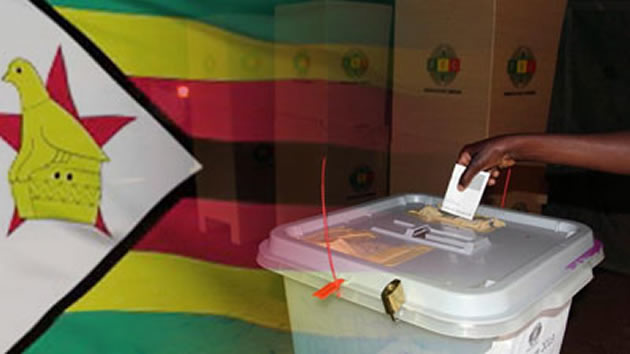New voting system adopted

 Felex Share Senior Reporter
Felex Share Senior Reporter
The polling station-based voting system has been adopted, with the Zimbabwe Electoral Commission registering voters at specific polling stations where they will cast their ballots in the Marondera Central by-election on September 19.
Zec said once fully implemented, the new system would put to rest allegations raised by opposition parties in the past of ghost voters, double voting, voting by ineligible people and possible inflation of votes for participating candidates.
The Electoral Act (Chapter 2: 13) provides for the creation of polling station-based voter registers.
Until now, voter registration was ward-based and voters could vote at any polling station within their ward.
With the new localised voting system, voters will only cast the ballot at the polling station where their names appear on the voters’ roll.
Zec held an all-stakeholders briefing on the new voting system yesterday attended by political parties, civil society, churches, police, traditional leaders, people with disabilities and local authorities.
Making a presentation to the stakeholders, Zec deputy chairperson Mrs Joyce Kazembe said polling station-based voter registration in Marondera Central began on Monday last week and ends on Sunday.
She said the new registration system should be possible to clear the voters’ roll of so-called ghost voters.
“We are encouraging everybody in the defined households who are going to be forming the voting area to actually go physically and register because we are creating a polling station voter register,” said Mrs Kazembe.
“With that, we don’t expect someone dead to present himself or herself. If somebody arrives on the day of voting and present themselves at a polling station and the person had not actually registered during this period, we refer to our baseline, the 2013 voters’ roll, to check whether one is registered and then direct that person, based on the address, to the specific polling station where the person should vote,” she said.
“We are dealing with live persons, people that have actually registered and have been placed in a polling station register and who have come to inspect the voters’ roll. The 2013 voters’ roll will just be a baseline to catch those people that had not come and who will present themselves.”
Mrs Kazembe said interested organisations or persons were free to inspect the ongoing voter registration exercise for Marondera Central.
She said a polling station would cater for up to 1 500 voters.
“We are using the 800-1 500 threshold and house numbers to allocate voters to a polling station and, where the number exceeds this threshold, a new polling station is to be created, probably at the same centre,” she said.
“Each polling station will have a specific code.”
Mrs Kazembe said while the electoral body’s aim was to come up with polling station specific voters’ rolls, they would continue relying on the one compiled by the Registrar General’s office for record purposes.
“It is important for us to make use of what is there at the moment for progress’ sake,” she said.
The Electoral Court recently ruled that Zec was not compelled to come up with a fresh voters’ roll.
This means the electoral body can still use the voters’ roll compiled by the Registrar General’s office and improve on it.
Addressing the stakeholders, Zec chairperson Justice Rita Makarau said the new system required adequate voter education and, as such, all stakeholders should assist in providing information to the electorate.
She said delays in aligning the country’s laws was delaying Zec in executing its mandate.
“We were informed that the Bill aligning the Electoral Act to the Constitution was introduced in the august House in May 2015,” she said.
“We have not yet been informed of any further progress beyond the first reading. It is not our place to demand that the Bill be enacted soonest and we make no such demand,” said Justice Makarau.
“We, however, feel genuinely apprehensive that if it takes so long to enact a Bill that we were advised was a stop gap measure, we may not have enough time before 2018 to consult and enact the substantive amendments to the (Electoral) Act that we feel are essential for the better management of the 2018 elections.”
Stakeholders raised questions mainly to do with the authenticity of the voters’ roll compilation and called for more civic education to ensure that as many people as possible registered.









Comments